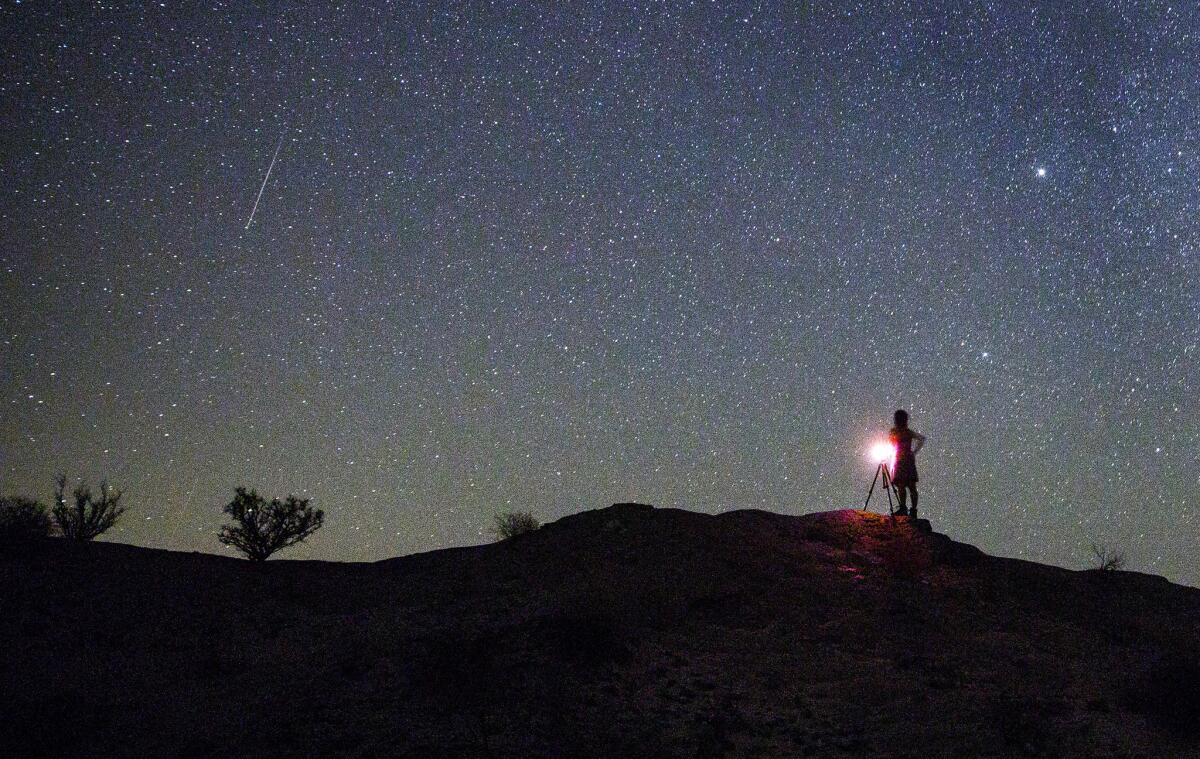As the vernal equinox nears, look up for captivating views of Jupiter, the moon and Orion

College photography professor Donna Cosentino watches a Perseid meteor streak through the starry sky above Anza Borrego Desert State Park, Calif. just before dawn on August 13, 2015.
- Share via
Spring seekers can take a clue from the world’s ancestors, who always cast their gaze heavenward at the beginning of the loveliest season.
Maya, for instance, likely knew the vernal equinox would send a snake-like flame of light slithering along the staircases at Mexico’s Chichen Itza, and whoever built Stonehenge may have lined up the rocks with heavenly light in mind (New Agers and neopagans these days flock to Stonehenge at sunrise to mark the day that brings nearly equal amounts of day and night throughout the world).
If you keep your eye on the sky about this time of year, expect to get good views of Jupiter, the gibbous moon (not quite fully illuminated) and the outline of the constellation Orion. Of course, telescopes are a must, and star parties may be a fun way to go.
In Oregon, the Rose City Astronomers and Vancouver Sidewalk Astronomers are hosting free star-gazing parties March 19 — with telescopes and folks who know what they’re talking about — at Rooster Rock (an hour east of Portland) and L.L. Stub Stewart (an hour northwest of Portland) state parks.
Info: www.rosecityastronomers.net
Closer to home, Death Valley is hosting a free three-day Celestial Centennial and MarsFest Symposium on April 8-10. There, experts will tell you just about everything you need to know about the solar system. NASA agencies, including the Ames Research Center and Jet Propulsion Laboratory, will reveal sites in the park that could be stand-ins for Mars.
At night, you’ll get help navigating the universe using telescopes as you’re gathered around the campfire. Maybe this is how early man saw the heavens, with less magnification but no less sense of wonder and hope.
Info: The event is free, but you must register before you go.
Sign up for The Wild
We’ll help you find the best places to hike, bike and run, as well as the perfect silent spots for meditation and yoga.
You may occasionally receive promotional content from the Los Angeles Times.




